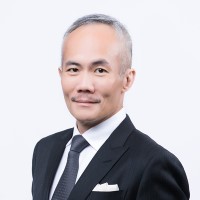
尽管市场期待着2023年的强势反弹,但迄今为止,香港的交易活动仍表现疲软,持续的地缘政治动荡及中国内地慢于预期的经济复苏也使事态愈发复杂。因此,香港的法律业务也尚未恢复至同期水平。律所管理者与ALB分享了度过困难时期的方法,以及他们对“曙光终必来临”的信心。
ALB:香港的哪些经济活动近期得以恢复,这对贵所的法律服务需求有何影响?
 陈文耀,德汇律师事务所,香港办公室管理合伙人:经济活动的恢复,尤其香港与外界便利通行的恢复,对我们来说都是好消息。德汇香港办公室是我们在大中华地区的业务支点之一。德汇在中国拥有北京、上海、香港三家办公室,大家不区分办公地点,同属于一个大团队——这是我与北京、上海办公室负责人长年累月、共同打造的德汇特有的发展策略及律所基因。
陈文耀,德汇律师事务所,香港办公室管理合伙人:经济活动的恢复,尤其香港与外界便利通行的恢复,对我们来说都是好消息。德汇香港办公室是我们在大中华地区的业务支点之一。德汇在中国拥有北京、上海、香港三家办公室,大家不区分办公地点,同属于一个大团队——这是我与北京、上海办公室负责人长年累月、共同打造的德汇特有的发展策略及律所基因。
在此基础上,为客户提供跨境服务时,我们的中国团队经常要展开跨地区合作,有时为了提供最精准的服务,还需要和美国、加拿大、伦敦的同事展开合作。这是德汇特有的优势。
因此,伴随着经济和旅行活动的恢复,过去几个月,陆续有美国、伦敦、中国内地的客户或律师代表团来到德汇香港办公室。代表团的到来是特别积极的信号,有助于推动我们在香港各个领域的法律服务需求的增长,比如跨境公司业务、知识产权、跨境争议解决,以及全球财富和资产管理等。
 黄浩宸,浩宸律师事务所,管理合伙人:今年初以来,香港经济,尤其那些受新冠疫情重创的行业,如旅游、餐饮、零售和消费等,已经呈现出复苏态势。
黄浩宸,浩宸律师事务所,管理合伙人:今年初以来,香港经济,尤其那些受新冠疫情重创的行业,如旅游、餐饮、零售和消费等,已经呈现出复苏态势。
然而,在金融服务领域(金融科技除外),诉讼业务还是多于交易类业务,前者主要涉及破产诉讼、债务追讨、债券发行人违约及由此产生的债券持有人索赔,因为公司重组和裁员引发的劳动争议、监管争议,以及私募股权投资者对不良或失败投资的索赔。
自今年初香港政府宣布全力发展金融科技行业,特别是从6月1日起,新的虚拟资产交易平台申请制度生效,我们发现,与交易平台申请相关的咨询大幅增加,同时有越来越多客户就在香港设立金融科技业务寻求法律意见。此外,有意在投资组合中增加加密货币风险敞口的持牌资产管理公司申请许可咨询也有所增加。
与此同时,2022年加密货币——如FTX、BlockFi、Three Arrows、Luna——崩盘的余波仍在持续,我们在加密货币破产和索赔领域的工作仍然较为繁忙。
疫情期间,涉及传统货币和加密货币的网络欺诈案件激增,我们也在继续帮助多位受害者追讨被盗资金。
此外,我们还注意到了在香港有限合伙基金和开放式基金型公司制度项下,基金设立咨询需求的增加。
 林威,中伦文德胡百全(前海)联营律师事务所,主任:与其他香港律师事务所不太一样,我们是由中国内地的中伦文德律师事务所与香港的胡百全律师事务所共同设立的一家联营律所。因此,中伦文德胡百全继承了两家律所的广泛资源和优势,为客户提供全面的中国内地和香港法律服务。我们也是粤港澳大湾区首批合作联营的律师事务所之一。
林威,中伦文德胡百全(前海)联营律师事务所,主任:与其他香港律师事务所不太一样,我们是由中国内地的中伦文德律师事务所与香港的胡百全律师事务所共同设立的一家联营律所。因此,中伦文德胡百全继承了两家律所的广泛资源和优势,为客户提供全面的中国内地和香港法律服务。我们也是粤港澳大湾区首批合作联营的律师事务所之一。
后疫情时代将释放大量的跨境法律服务需求,中国内地客户在过去三年也一直期待着与海外恢复正常交流。香港的经济活动复苏,以及香港与内地之间全面恢复旅行,为大湾区内部的跨境投融资、争议解决带来了大量机会。作为一家联营律所,我们深刻受益于此,也已经做好了准备,为客户提供一站式高端法律服务。
ALB: 香港寻求恢复其作为区域中心的地位,在此过程中,您观察到哪些具体法律需求的增加?
陈文耀:的确,我们所接触到的法律工作类型表明,香港正在再次确认自身的区域法律中心地位。最近几个月,我在香港接待了不少国际客户和海外法律团队,过程中发现,涉及美国、英国以及香港/中国内地诉讼当事人的争议解决案件正有所增加。
此外,鉴于香港作为法律和金融中心的地位,我还观察到家族办公室、私人财富和资产保护领域咨询的增加——客户都希望在乌卡时代做到未雨绸缪。预计在今年下半年,国际资本市场和并购方面的需求也将有所改善,将继续强化香港的法律和金融中心地位,以及在中西方之间扮演的商业门户角色。
黄浩宸:我们观察到金融科技/加密货币领域的监管咨询有所增加。上面提到的有限合伙基金和开放式基金型公司制度下的基金设立咨询也逐渐增多。
我们还看到了大量债券违约事件,尤其是与中国房地产行业相关的违约事件,也在帮助债券持有人追索权益。
另一个表现强劲的领域是金融市场的破产清算——此中涉及私募股权基金、对冲基金和加密货币平台等。我们还观察到越来越多的监管调查。
上述咨询具有一定的滞后性:投资者往往在事发后一两年才意识到,只有通过法庭才可能追索到实在的救济。与此相对,债务人或其他被投资方则需要在相关案件中为自己辩护。
可以肯定的是,许多中国投资者重新对香港的区域中心角色产生了兴趣——他们经常把香港和新加坡放在一起考虑。我们时常面对两类客户,一类身处亚洲之外,希望在该地区建立业务基础;另一类是中国客户,他们希望实现国际化目标。这两类客户可能需要同时在香港和新加坡两个城市设立业务,而我们律所恰好能够在两地同时提供法律服务。
林威:根据我们的经验,近年来,特别是在疫情期间,在资本市场领域,除了传统的IPO业务,香港上市公司的交易恢复、清算和重组等方面的服务需求也在增加。我们认为这类需求的增加恰恰源于市场对于香港作为区域资本市场中心的认可。
ALB: 贵所是否正在密切关注由经济复苏带来的新兴法律趋势或监管变化?
陈文耀:2023年是人工智能之年。谈到法律趋势和监管发展,我们首先要密切关注人工智能在各个领域,包括法律行业的应用。我们律所成立了一个“人工智能特别工作组”,我担任该工作组人工智能咨询团队的成员。在德汇,我们可以接触到许多基于人工智能的法律科技工具。我也在全方位关注该领域趋势,确保跟进技术发展,以合适的工具为客户提供有价值的服务。
黄浩宸:我是新加坡人,但在香港生活了几十年、拥有香港的永居身份,且在两个司法辖区均具备律师资格。最近,常有人问我这两座城市之间的竞争关系。近期有许多关于新加坡的讨论,这座城市好像一下变得特别受欢迎,与此同时人们开始质疑:香港是否还能和新加坡比肩而立(香港人内心也透露出不少担忧)?
有一点很明确,香港和新加坡之间的竞争(以及较少提及的合作)关系对两个城市都是有利的。我们已经看到两座城市在加密货币监管这一新兴领域中既相互竞争,也同时发展。这使它们成为了亚洲乃至全球领先的金融科技中心。
我们还看到它们在资产管理、家族办公室、科技、贸易和创新等领域的竞争,并且因竞争而扩大了各自的市场份额。这非常令人兴奋,并将最终推动整个亚太地区的发展,并为该地区的所有人创造机遇。
林威:疫情期间,许多跨境保险业务无法进行,或受到疫情影响。今年年初以来,内地与香港之间重新开放,也促进了跨境保险法律服务需求的增长。
举例来说,我们律所近期参与的一宗项目,就涉及对某家香港上市的保险公司进行超过10亿美元的战略投资。这个项目实际上是在疫情爆发之前启动的,然而直到最近才进展到最为重要的谈判和起草文件阶段。
保险业务之外,由于香港是全球最大的金融市场之一,投资基金和跨境企业融资在过去六个月内增长相对迅速,这方面应该存在对监管合规服务的需求,尤其保险、基金和其他金融服务行业的需求最为突出。
ALB: 财政司司长陈茂波最近称香港现时“正处发展的黄金窗口”。贵所如何调整发展策略,抓住这一窗口机遇?
陈文耀:没错,我们正在采取更多措施,以便抓住香港发展的黄金窗口。对我们来说,这意味着采纳积极的、具备前瞻性的策略,为我们所在城市的发展构建法律领域的基础设施。
德汇香港团队的重心肯定是与大湾区的客户及人脉资源更加密切地展开合作。我们的不少律师在大湾区长大,因此十分熟悉这一区域。我们内部设有大湾区委员会,专注于将律所业务、专业知识和软实力与大湾区的机遇相结合。我们希望在此领域成为引领者,将德汇在全球21个办公室的法律实践和服务与大湾区发展进行有机结合。实际上,自1995年开设以来,德汇香港办公室一直扮演着这样的桥梁角色。
在非诉业务方面,我们帮助中国和亚洲客户进入西方市场;在诉讼业务方面,我们则帮助中国和亚洲客户获得有效的法律协助,以确保在当前动荡的地缘政治环境下,在监管调查或司法程序中得到公正的对待。
黄浩宸:过去几年香港经历了相当具有挑战性的时期。特别是在疫情期间,许多人都在想:我们究竟何时能看到曙光?
我相信财政司司长的乐观态度是正确的,香港正在经历复苏。过去几年的困难时光也给了香港重新审视和重塑自我的机会。
过去几年见证了不少竞争对手的离开。我们则选择坚守,并在这段时间里采纳了谨慎增长的策略。过去两三年里律所的规模扩大了一倍,引进了一批具有一定客户基础的资深从业人员。当然,我承认,起步规模较小的律所做到这样的成绩并不算太难。
过去几年,我们重点关注于诉讼、争议性监管工作和破产案件,事实证明这一策略是成功的。
我相信时机很快将要成熟,我们将扩展在公司和交易业务方面的能力。过去两三年,这些领域确实经历了艰难时期,然而我们律所新近加盟的从业人员为该领域增长打下了基础。今年剩下的时间可能会继续遭遇逆风,这谁也说不好,但逆风通常意味着更多的争议解决案件,我也对2024年及以后交易类工作的增长持乐观态度。
林威:我们希望充分利用粤港澳大湾区法律服务行业的融合和发展。这也将为我们在香港的法律服务业务带来机遇和挑战。
最明显的机会是更多内地公司和中国资本公司将在香港扩大业务,这可能带来法律服务需求的增长。在此方面,联营律所的背景使我们能够在“黄金窗口期”为不同领域提供各类法律服务。
ALB: 展望未来,您所在律所在香港法律市场将会面临哪些新机遇和挑战?
陈文耀:对我来说,大湾区机遇和人工智能是香港法律市场上最值得关注的两个话题,它们既带来机会,又蕴含挑战。在我的管理理念中,激励他人取得辉煌成就最为重要,因此我倡导“从胜利中学习”的座右铭。我期待律所抓住新机遇,同时认真对待在上述两个命题领域内学到的功课。
黄浩宸:迄今为止,我们面对的头号挑战仍旧是中美摩擦,以及它在全球范围内,特别是在香港所引发的不确定性和冲击。
习近平主席于去年7月1日在香港发表讲话,自那时起,中国高级官员一直对此立场加以重申,清楚表明香港作为国际金融、贸易和法律中心的地位对中国来说至关重要。
只要中国经济保持其发展轨迹,香港作为中国国际商务和金融领域的法律中心,也会在全球范围内保持其影响力。香港也在中国内地和东盟之间扮演着商业和法律纽带的角色——虽然中国和东盟已经是彼此最大的贸易伙伴,但我相信它们之间的关系还有更大的发展空间。
除东南亚外,我们还注意到香港作为区域中心,开始引发更多欧洲、中亚和中东客户的兴趣。这可能是“一带一路”倡议引发的良性结果,我们也已经开始寻求与此相关的新增长机会。
至于挑战,由中美摩擦带来的不确定性仍然是香港作为国际金融、贸易和法律中心所面临的最大挑战之一——没人知道事态在未来几年将如何发展。我们的策略是保持灵活,同时寻找机会。
林威:我们看到,近年在香港和中国内地之间,尤其是在婚姻、家庭、商业和民事事务方面,民商事判决相互承认和执行的相关协议不断得以颁布。此外,后疫情时期,婚姻家庭纠纷、民商事争议等法律服务需求也在增加。
然而,能够处理法律文化差异并熟悉中国内地和香港两地法律实践的律师并不多。
这既是机会,也是挑战,我们需要为此做好准备,以满足这些领域需求的增长。我们的目标是通过参与大量的跨境婚姻、家庭、商业和民事纠纷,培养律师成为具备专业知识的专家。
作为一家联营律师事务所,我们的员工中既有内地律师,也有香港律师,我们会充分利用这一优势,更好地为中国内地和香港客户在婚姻家庭、民商事等领域提供优质的法律服务。
WAITING FOR THE TURNAROUND
For all the talk of a robust rebound in 2023, Hong Kong’s dealmaking scene has been soft so far, compounded by lasting geopolitical upheavals and a slower-than-expected economic recovery in Mainland China. As a result, legal work hasn’t entirely returned in the same way. Law firm leaders share with ALB how they are working through this challenging period as they await the light at the end of the tunnel.
ALB: What kind of economic activities have returned in Hong Kong, and how has that impacted the demand for legal services in your firm?
 SIMON CHAN, Hong Kong managing partner, Dorsey & Whitney: The return of economic activities and especially the return of easy travel in–and–out of Hong Kong, have been very positive for us. The reason is that our Hong Kong team functions as a pillar for our three Dorsey China offices, namely, Beijing, Shanghai, and Hong Kong. We work as one team with three locations in China. It is a strategy and unique Dorsey DNA that I spend time cultivating with our practice leaders in Beijing and Shanghai.
SIMON CHAN, Hong Kong managing partner, Dorsey & Whitney: The return of economic activities and especially the return of easy travel in–and–out of Hong Kong, have been very positive for us. The reason is that our Hong Kong team functions as a pillar for our three Dorsey China offices, namely, Beijing, Shanghai, and Hong Kong. We work as one team with three locations in China. It is a strategy and unique Dorsey DNA that I spend time cultivating with our practice leaders in Beijing and Shanghai.
Also, most of our cross-border client matters will involve two or more of our China offices and often lawyers from our U.S., Canada, and London offices to draw on the right legal expertise. It is a sweet spot for us.
As such, the return of economic and travel activities brought several delegations of clients and our lawyers from our U.S., London, and mainland China offices to return to Hong Kong in the last few months. These delegations are important for the legal work that we do for our clients. These activities help drive up demand for legal services for all our various practice areas in Hong Kong such as our cross-border corporate work, intellectual property, cross-border dispute resolution, and global wealth and assets management practices.
 BASIL HWANG, managing partner, Hauzen: Hong Kong’s economy has seen a rebound since the beginning of this year in the sectors hardest-hit by COVID – tourism, F&B, retail, consumer spending.
BASIL HWANG, managing partner, Hauzen: Hong Kong’s economy has seen a rebound since the beginning of this year in the sectors hardest-hit by COVID – tourism, F&B, retail, consumer spending.
In the financial services, however (with the exception of fintech) – we’ve continued to see more litigation than deals, ranging from insolvency litigation, debt recovery, bond issuer defaults and resulting bondholder claims, employment disputes, regulatory disputes in the industry as firms restructure and downsize, and claims by private equity investors against non-performing or failed investments.
Since the Hong Kong government announced its all-in efforts to develop the Fintech industry in Hong Kong earlier this year, and especially with the new virtual assets exchange regime that came into force on June 1, we’ve seen a huge uptick in enquiries and work on exchange licensing, as well as requests for advice and legal opinions on setting up Fintech businesses in Hong Kong. We have also advised on licensing uplifts for licensed asset managers interested in taking on a larger exposure to cryptocurrency in their portfolios.
At the same time, the aftermath of the spectacular cryptocurrency collapses in 2022 – FTX, BlockFi, Three Arrows, Luna, to name a few – continues to resonate, with our work in crypto insolvencies and claims continuing to be strong.
During COVID, we saw a surge in online fraud involving recognised currencies as well as cryptocurrency - we continue to see a steady flow of work in this area as we help multiple victims recover stolen funds.
Separately, we’ve also seen an increase in inquiries for fund formations, including under Hong Kong’s Limited Partnership Funds and Open-Ended Fund Company regimes.
 LIN WEI, managing partner, PC Woo & Zhonglun WD: Our firm is not quite the same as any other Hong Kong law firms since we are an associated firm between the mainland China firm Zhonglun W&D Law Firm and the Hong Kong firm PC Woo & Co. The two firms joined hands to establish our firm - PC Woo & Zhonglun WD LLP, which inherits the vast resources and advantages of both firms to provide comprehensive mainland China and Hong Kong legal services to our clients. We are also one of the first batch of association firms in the Guangdong-Hong Kong-Macao Greater Bay Area.
LIN WEI, managing partner, PC Woo & Zhonglun WD: Our firm is not quite the same as any other Hong Kong law firms since we are an associated firm between the mainland China firm Zhonglun W&D Law Firm and the Hong Kong firm PC Woo & Co. The two firms joined hands to establish our firm - PC Woo & Zhonglun WD LLP, which inherits the vast resources and advantages of both firms to provide comprehensive mainland China and Hong Kong legal services to our clients. We are also one of the first batch of association firms in the Guangdong-Hong Kong-Macao Greater Bay Area.
The post-pandemic era will release large amounts of cross-border legal services demands from those mainland China clients, who have been waiting for resumption in the past three years. The return of economic activities in Hong Kong, as well as the fact that travel between Hong Kong and the Mainland has fully resumed, have brought a significant amount of opportunities in terms of cross-border investment, financing, and dispute resolution in the Greater Bay Area. This has greatly benefited us as a mainland China-Hong Kong association firm, so we are in the position to offer one-stop premium legal services to our clients.
ALB: With Hong Kong trying to reclaim its position as a regional hub, what specific areas of legal work are you witnessing increased demand for?
CHAN: Indeed, the type of legal work that I see points to Hong Kong reaffirming that we are a legal hub in this part of the world again. Based on my recent hosting of our international clients and overseas legal teams visiting us in Hong Kong in the last several months, there is a rise in legal work involving dispute resolution involving U.S., UK, and Hong Kong/China-based litigants.
Also, with Hong Kong’s status as a legal and finance hub, I also see a rise in inquiries concerning our work for family offices, private wealth, and asset protection to futureproof the VUCA environment for our clients. I expect demand will also improve in the second half of this year for international capital markets and M&A to help strengthen Hong Kong’s position as a legal and financial hub and commerce gateway between China and the West.
HWANG: We’re witnessing increased demand for regulatory advice in the Fintech/cryptocurrency area. Requests for assistance with fund formations under the LPF and OFC regimes have also seen a gradual rise.
We’re also seeing a lot of the bond defaults, especially in the Chinese property sector, coming home to roost as we pursue bondholder claims against issuers.
The other area that is showing strongly is insolvency in the financial markets – from private equity and hedge funds to cryptocurrency platforms. We’re also seeing a growing number of regulatory investigations.
All the above tend to be lagging indicators, as investors who have lost money come to the realisation, sometimes a year or two after the event, that they need to pursue their claims in the courts if they are to have any hope of meaningful recourse, and on the other side debtors or others who have received investment are forced to defend themselves.
To be sure, in terms of a geographical trend, many Chinese investors are taking a rekindled interest in Hong Kong as a regional hub, often in conjunction with Singapore. We often tell clients that in order to either establish a footprint in the region (in the case of clients from outside Asia), or to internationalise (in the case of Chinese clients), they probably need to have a presence in both cities – Hong Kong and Singapore – which happen to be jurisdictions in which we are capable of assisting them.
LIN: Based on our experience, in recent years, especially during the pandemic, one of the specific areas with increasing demand for legal services, besides traditional IPOs, would be capital markets with regard to resumption of trading, liquidation and restructuring of Hong Kong-listed companies. We believe that this increased demand stems from Hong Kong’s role as a regional capital market.
ALB: Are there any emerging legal trends or regulatory changes resulting from the economic recovery that your firm is closely monitoring?
CHAN: I would say 2023 is the year of AI. As a legal trend and regulatory development to monitor it is certainly the use of AI in all walks of life including our own legal industry. Our firm formed an Artificial Intelligence Task Force. I serve as a member of the AI Advisory Team for the Task Force. At Dorsey, we have access to various AI-based legal techs. As such, I am closely monitoring this trend from 360 degrees to ensure that we find the right model that adds value for our clients.
HWANG: As a Singaporean, a decades-long permanent resident of Hong Kong, and a lawyer qualified in both jurisdictions, I often get asked about the competition between the two cities. Much has been said about the astounding popularity of Singapore in recent times, and questions asked about how Hong Kong compares (together with much hand-wringing anxiety on the part of those in Hong Kong).
One thing that’s clear is that the competition (and, less-often mentioned, collaboration) between Hong Kong and Singapore is good for both cities. We’ve seen them develop in competition, and also in tandem, in the emerging field of cryptocurrency regulation. This has resulted in them becoming the leading Fintech hubs in Asia, and indeed internationally.
We are also seeing them compete, and as a result each grow their respective pies, in asset management, family offices, technology, trade and innovation. I think this is very exciting and will ultimately drive growth and create opportunities for everyone in the Asia-Pacific region, and everyone participating in the region.
LIN: A lot of cross-border insurance business was not able to carry out during the pandemic or was impacted by the pandemic. The reopening of control points between mainland and Hong Kong since the beginning of this year has secured the increasing demand for cross-border insurance legal services.
For example, our firm is engaged in a project involving more than $1 billion strategic investment in an insurance company listed on HKEX. The project was actually launched before the pandemic. However, it was not until recently the project has reached substantial phases for negotiation and drafting documents.
Apart from insurance, as Hong Kong is one of the world's largest financial markets, investment funds and cross border corporate finance have grown relatively fast in the last six months, from which we could sense a demand for regulatory compliance in this regard, especially for insurance, funds, and other financial services.
ALB: Financial Secretary Paul Chan Mo-po recently called this the "golden window for development" for Hong Kong. How has your firm adapted its growth strategy to capitalise on this window?
CHAN: Yes, we are doing more to capture the golden window of development opportunities for Hong Kong. For us, this is translating into a positive forward-thinking strategy for building a legal business infrastructure to capture Hong Kong’s development opportunities for our city.
The theme for our Hong Kong teams will certainly be being closer and working alongside our clients and network of contacts in the Greater Bay Area. Several of our firm’s lawyers know the GBA well. They grew up there. We have an in-house GBA committee to focus on integrating our practice, know-how, and soft skills with GBA opportunities. As you know, even the ecosystem of apps used for smartphones in China requires acquiring a new skill set to navigate the GBA well. In doing all this, we want to be the lightning rod that brings Dorsey’s legal practices and service offerings in our global 21 offices to the Greater Bay Area and beyond. It has been a role that Dorsey played well since we opened here in Hong Kong in 1995.
On the non-contentious side, we help Chinese and Asian clients access Western markets. For the contentious side, we help our Chinese and Asian clients get the best legal help that they can get to ensure fair and just treatment in their regulatory investigation or judicial process under the current VUCA geopolitical environment.
HWANG: Hong Kong has gone through some quite challenging times over the past few years. Many have wondered, particularly, in the thick of the COVID years, when we would see the light at the end of the tunnel.
I believe that the financial secretary is right to be optimistic, and that Hong Kong is now in the process of a meaningful recovery. The difficulties of the past few years have also provided Hong Kong with an opportunity to examine and reinvent itself.
We’ve seen many competitors leave the field in the past few years. In contrast, we’ve stayed and indeed adopted a deliberate strategy of careful growth during that time. Our firm has doubled in size in the last two or three years, mostly by the addition of senior practitioners with a following. I’ll admit that that’s of course easier to do when you started small.
We’ve focused our practice in the last few years on litigation, contentious regulatory work, and insolvency, which has proven to be a successful strategy for us.
I believe the time will soon be ripe to grow our corporate and transactional work capabilities, a practice area which I think everyone would agree has seen hard times in the past two to three years. Our recent practitioner additions are evidence of our building the foundations for that growth. I do not rule out more headwinds in the remainder of this year, which usually means more contentious engagements, but am optimistic about deal work from next year onwards.
LIN: We definitely wish to take advantage of the integration and advancement for legal services industry in the Guangdong-Hong Kong-Macao Greater Bay Area. It will also bring opportunities and challenges to our legal service business in Hong Kong.
The most obvious opportunity would be that more mainland China companies and Chinese-funded companies will be expanding their business in Hong Kong, which could bring growth in legal services demand. In this respect, our background of mainland China-Hong Kong association gives us the superiority to provide a variety of legal services in both practices during this "golden window for development.”
ALB: Going forward, what are some of the new opportunities and challenges you expect to see in the Hong Kong legal market for firms like yours?
CHAN: To me, the Great Bay Area opportunities and artificial intelligence are both topics that present amazing opportunities and unique challenges for us in the Hong Kong legal market. In my management philosophy, I coach a “we-win-and-learn” motto to inspire others to achieve greatness. As such, I expect we will embrace all the new opportunities while treasuring the lessons that we encounter on these two topics.
HWANG: By far, the most significant of the headwinds I’ve mentioned above is the global competition between China and the U.S., and the uncertainty and disruption it is causing all around the world, and particularly in Hong Kong.
President Xi’s speech in Hong Kong on July 1 last year, and re-affirmations of that position ever since by senior Chinese officials, has made it clear that Hong Kong’s position as China’s international finance, trade and legal centre is important to China.
As long as the Chinese economy maintains its trajectory, Hong Kong as China’s centre for law in international commerce and finance should grow in prominence globally. Hong Kong also plays an important role as a commercial and legal nexus between mainland China and ASEAN – and while the two are already each other’s largest trading partners, I believe that relationship has much more room to grow.
Aside from Southeast Asia, we are also seeing an increase in interest in Hong Kong as a regional base by European, Central Asian, Middle Eastern clients, perhaps as a result of the Belt and Road Initiative. That is an opportunity we are already starting to take advantage of.
As challenges go, the uncertainty brought by the U.S.-China competition remains the most significant one for Hong Kong as an international centre for finance, trade and law – no one really knows how this will play out in a few years. Our strategy for dealing with this is to remain lean and adaptable, while looking for opportunities amidst the disruption.
LIN: We have seen growth in issuance of legal instruments and agreements in terms of reciprocal recognition and enforcement of civil and commercial judgments between Hong Kong and the mainland China, especially concerning marriage, family, commercial and civil matters. Also, legal service demand for solving disputes like marriage and family dispute, civil and commercial disputes has been increasing upon recovery from the pandemic.
However, there are few experienced lawyers who can handle the legal culture difference or are familiar with both legal practices of mainland China and Hong Kong.
This would be an opportunity, as well as a challenge, for us to prepare to embrace the growth of demand in such areas. We aim to train lawyers to be experts with the expertise through participating in large numbers of cross-border marriage, family, commercial and civil disputes.
We will be pursuing this goal and take full advantage of our position as a mainland China-Hong Kong association law firm with both mainland and Hong Kong lawyers, in order to better serve and provide high quality legal services in the areas of marriage and family law, civil and commercial law, to our mainland China and Hong Kong clients in the near future.


